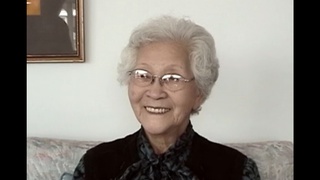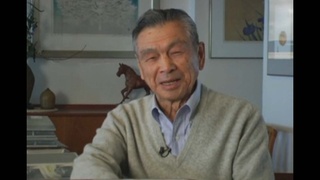Interviews
Nisei Parents
Both of my parents are Niseis. They’re second-generation Americans. My father was born in Bakersfield, California and my mother was in Brawley, California. Both of my parents went back to Japan at a very early age. I guess that it was for education purpose, or whatever. Perhaps their dream of a better life in America didn’t fulfill itself.
My father, at a pretty young age, probably in the early-teens, came back to the United States alone and worked as a house boy in Bakersfield. He grew up there, went to high school, started to work and he was living a pretty happy life, until around age 25. He had a girlfriend and I guess things were getting pretty serious, there until he received a letter from his father, which is my grandfather, saying that, “Hiroji,” that’s his name, “You are now married. Your wife is arriving in San Pedro Harbor. Go pick her up.’ He said it was very difficult for him to tell his girlfriend that now…he is now married and he has to go pick up his wife in San Pedro.
Now I’m not sure whether my father embellished the story or not, but that’s the way he told me, the way he got married. So, he went to San Pedro Harbor and I asked him, I says, “How did you feel when you first saw your bride?” And he says, “Ichiban busaikuna” “busaikuna” means kind of not so good. That's a derogatory word. Then I asked my mother, I said, “Gee, how did you feel when you first saw my father?” And she said, “gakkarishita.” She was greatly disappointed. However they had a wonderful life. Well, I don’t know, maybe not such a wonderful life, but they were married for 50-some odd years until they passed away.They were married in 1935. My older brother Kenny was born in 1936, and I was born in 1938.
Date: September 3, 2019
Location: California, US
Interviewer: Masako Miki
Contributed by: Watase Media Arts Center, Japanese American National Museum










